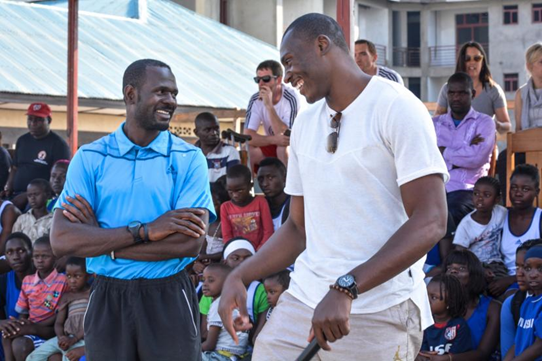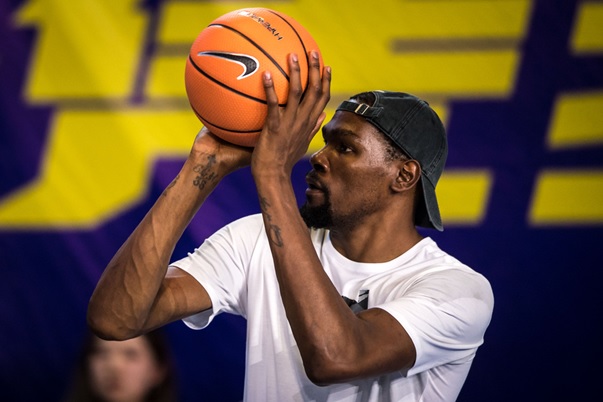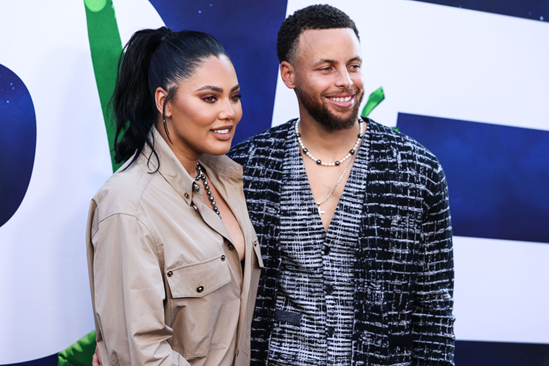
NBA center Bismack Biyombo donated his entire salary from the 2021–2022 season to help construct a hospital in his native Democratic Republic of the Congo. The facility honors his late father, Francois, who passed away in August 2021.
It may seem like a drastic gesture to some, but anyone who knows the 12-year NBA veteran—or, honestly, spends even a few minutes in his orbit—knows that Bismack has a deep-seated sense of compassion for people.
Days after his rookie season ended, at the age 19, the Lumbashi native was thinking about the next generation. To give Congolese youngsters access to healthcare, education, and sports possibilities, he founded the Bismack Biyombo Foundation in 2012.
The organization has renovated multiple courts that host Biyombo’s national camps and grants 185 academic scholarships annually to students in the Democratic Republic of the Congo and the United States. It also donates equipment to hospitals for renovation. In addition, the foundation has provided employment and stability to many civilian Congolese workers.
As vice president of the NBA Players Association, Bismarck recently cohosted a dinner called “Dope Africans”, which aims to promote African economic growth. The Memphis Grizzlies center often mentions that, at an early age, his late father instilled the value of compassion within him.
When Bismarck was 16, Francois Biyombo made a deal with him that allowed him to move away from home to play basketball professionally in Yemen, allowing him to live out his dreams. The Biyombo family’s livelihood and, consequently, the destiny of the Democratic Republic of the Congo were drastically altered by that choice, which propelled Biyombo to the NBA.
In the following talk, Bismack Biyombo discusses his father’s influence, the significance of his foundation, his wish to alter global perceptions of Africa, and the legacy he hopes to leave behind. The interview has been condensed to improve clarity and duration.
I’m sorry, Bismarck. I know you and your family recently lost your father. I saw an article in which you talked about how your father is everything to you and how he’s shaped the way you live. You also place great importance on giving back. Could you elaborate on how that blueprint impacts your mission?
Bismack Biyombo: It dates back to my early childhood. Do you feel that someone is carrying out a vision in your mind without informing you? That’s my interpretation of it.
My father helped shape the person I am now. In addition to being appreciative that I made it to the NBA, he helped me keep my origins in mind. That’s the source of my desire to be of service. I know the difficulties associated with growing up [in the Congo].
Because of him, people can recognize the need for change and say, “I want to be part of making [the Congo] have a better future.”
You spoke about your father’s giving nature and how, even when your family didn’t have enough food, he would always welcome people to your house for dinner. What other recollections come to mind as you think of that blueprint?
Biyombo: Many events in my early years taught me lessons that will enable me to improve the surroundings in which children are raised in the modern world. I am thankful that I experienced all the things that I did because I would not be the person I am today without them. I would not be the man I am today without the [lessons] my parents taught me.
The challenges of simply getting to school and the surroundings in which I studied were ever present. For example, I only owned brand-new sneakers people wore when I was 16.
Leaving home at 16 meant giving up a part of my youth. I made that sacrifice to reach the NBA. I’ve taken all of these things with me on my journey. I needed to miss out on that phase since it allowed me to share what I never had.
We didn’t have a lot of food, so what can I do to ensure that kids eat enough today? How do we set up a situation in which children can have brand-new shoes and clothes? How can we give these children a space to just be kids?
My goal was to return home and begin assisting with the project to ensure children could access educational opportunities on par with those in America. I wanted them to be able to dream big and be near their loved ones.
All I wanted was for someone else to be an NBA player from my hometown. Oscar Tshiebwe, a former Kentucky basketball player and one of the students from one of my first [basketball] camps, has now inked a two-way contract with Indiana.
I used to pray to God for things like this to happen, which are finally happening in my life. Many of the experiences I’ve had now are worthwhile. This fascinating adventure has influenced my perspective on life.
You mention wanting children to be able to dream. Did you ever anticipate that you would come this far when you think back to your early years, such as the first time you picked up a basketball?
Biyombo: It was just a game to me at first, but after a while, I started to believe, “I think I can make something out of this game.” However, the truth is that growing up in Africa causes [your] struggles to become a source of resolve. You’re committed to finding a solution.
That’s why I struck a bargain with my father at ages 15 and 16. I begged him to let me go out and try my luck as a professional. I was confident we would all be alright if I could make this work.
Throughout my life, God has accomplished some of the most astounding things. My only dream when I moved to Yemen was to become a professional athlete, but then I learned that I could make it to the NBA. God has placed many people in my path who have helped me accomplish those objectives. I’m always appreciative of my experience.
You expressed the desire to see more players leave Congo. What is the story you want others to know about African people who aren’t from there or who aren’t from Africa in general?
Biyombo: From a talent standpoint, our continent is the youngest and expanding the fastest. Consider Africa as the future rather than just the continent of opportunity. There’s something about Africans that you see.
I want to look back in a few years and be able to say that the story has changed.
It was hard for me to explain to people that I was African when I first came here, but nowadays, people are starting to accept the idea that Africans can succeed and become somebody. When I first joined the NBA, I felt as though I was still working to establish that, but those days are behind me. African music is now played in NBA arenas, and Africans are doing many incredible things.
While everyone has had time to grow, we must accept responsibility for this moment as our own. Looking in the mirror and figuring out how to set our differences aside and cooperate for our continent’s beauty is one thing that I desire for all of us Africans. Just being able to state that Africans are collaborating is frequently challenging. While some of us are already doing it, how can we better come together as a group around a shared goal to improve this lovely continent of ours?
After we accomplish that, we’ll move more quickly and, ideally, look back on what we’ve accomplished in the following five to ten years.
Returning to your topic, the answer is that we prefer to have the outside world perceive us in a specific manner, but we have to decide for ourselves and own that preference. The Africa I would love to see is one that promotes the world to genuinely say, “These people are united.”
I adore that. I agree since you educate others on how to see and treat you. As you stated, leaving something behind for eternity rather than living forever is the ultimate objective in life. So, what lasting legacy would you like to leave behind?
Biyombo: My goal is to change the entire generation. Although we have constructed infrastructure in hospitals and schools and will do so in the future, my current goal is to change how an entire generation views the world. Before I die, I want to claim that we have completely transformed a generation’s belief system and worldview. I want to declare that a platform has been established through which this promise is realized and youthful talent is given the necessary assistance to thrive.
You have a promising future. What are your objectives, both on and off the court, for the forthcoming season?
Biyombo: To genuinely win a championship. That has always been my objective, and we will keep working toward this goal until it materializes.
Outside the court, I want to construct another school. I’m putting effort into this project. I want to provide our young people back home with better opportunities. While it’s good to be able to check off a task, we still need to keep working on it. We may create more opportunities the more we work. To do more is the aim.
My goal is to identify methods by which we may go on advancing gender equality and working to create a stronger foundation for our fellow human beings. The world in which we currently reside is overwhelmingly masculine. With that said, things are changing. I would love to see my three lovely young sisters have a place where they can be independent and assertive.
Africa is not like other places. Although we have a different mindset, we are also responsible for changing people’s perceptions so that women can be empowered, be themselves, and help to advance our society.



